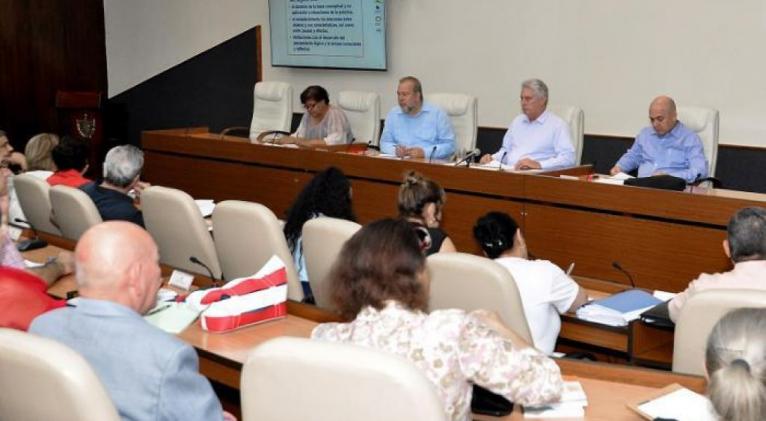Cuban schools to launch automation and robotics studies
especiales

Cuban President Miguel Díaz-Canel Bermúdez reviewed progress made on national educational programs during a meeting to examine results from a regional comparative-explanative study coordinated by the Latin American Laboratory for Assessment of Educational Quality, established in 1994 at the request of regional ministries.
A national television report noted that Cuba participated in the first two studies, in 1997 and 2006, and now the fourth, conducted May 30-31, 2019, with tests administered to students in third and sixth grades, in 251 primary schools across the country.
During the research, which was carried out without incident and with the participation of national and international observers, the best results were achieved by sixth-grade students, on the Spanish language exam.
Also discussed during the meeting were proposals to introduce automation and robotics at different educational levels, taking into consideration experience gained at Enrique José Varona Higher Institute of Pedagogy; the universities of Pinar del Río, Oriente, and Las Villas; as well as José Antonio Echevarría Technological University of Havana. Meanwhile the children’s technological park Finca de los Monos is preparing its first courses to introduce the fascinating world of robotics to the country’s budding scientists. The eight-week classes are set to begin in April.
"Just imagine the changes this will bring to society, when youngsters start learning robotics, when people start looking for other types of solutions to common problems," Díaz-Canel remarked.
During the meeting, with Deputy Prime Minister Roberto Morales Ojeda and Party Secretariat member Olga Lidia Tapia Iglesias participating, additionally reviewed was progress being made on the implementation of agreements reached during the Federation of University Students Congress, held last March. The organization’s president, José A. Fernández Castañeda, reported that, of the 158 plans adopted, 82 have been implemented, 20 are in process, and 46 are of an ongoing nature.













Add new comment